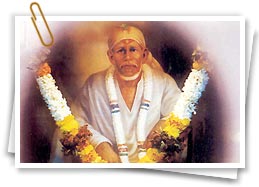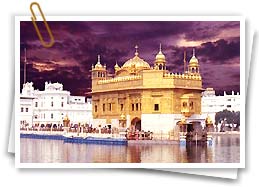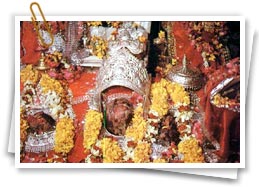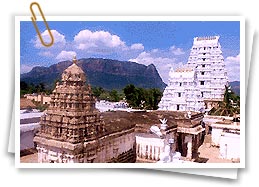| Holidays of
India |
| |
|
| Beaches in
India |
|
| |
|
| Cultural
Tours |
|
|
| Deserts in
India |
|
| |
| |
| Farm
Travels |
|
|
| Hills in
India |
|
|
| Luxury
Trains |
|
|
| Pilgrims in
India |
|
| |
| Soft
Adventure |
|
| |
| Wildlife in
India |
|
|
| Honeymoon
in India |
|
|
| Spritual
Tours in India |
|
| |
| Ayurveda in
India |
|
|
| Piligrams in India |
SHIRDI
 Shirdi is a small town located in the state of Maharashtra in
western India. The place is around 296 km (around 6 hours drive) from
Mumbai. Shirdi extends latitude 19°45¢ N and longitude 74°25¢ E. Shirdi is
basically a religious tourist center. Thousands of pilgrims flock to
Shirdi. Shirdi is a small town located in the state of Maharashtra in
western India. The place is around 296 km (around 6 hours drive) from
Mumbai. Shirdi extends latitude 19°45¢ N and longitude 74°25¢ E. Shirdi is
basically a religious tourist center. Thousands of pilgrims flock to
Shirdi.
There are several places of tourist attractions in Shirdi,
but it is the shrine of Sai Baba that is the hub of activity.
Samadhi Mandir of Shri Sai Baba was actually owned by a
millionaire from Nagpur and a famous Sai devotee Shreemant Gopalrao. He
wanted to keep an idol of Murlidhar here. However, according to the
legends, Baba himself became Murlidhar and the temple became the Samadhi
Mandir of Baba. The Samadhi of Baba is built with white marble stones. The
railings around it are full of ornamental decorations. The idol of Baba is
a marvelous statue made up of Italian marble built by Late Balaji Vasant
in 1954. The temple has an assembly hall for about 600 devotees. The
assembly hall also houses a showcase having various items used by the
sage. The first floor of the temple has the pictures depicting the life of
the saint. The temple opens on 5 am with morning prayers and close down at
10 pm with night prayers.
There are several places to see and
visit near Shirdi too. Situated around 5 km from Shirdi is Sakori. The
place is home to the Upasini Maharaj.
Shanisinghnapur is 70 km
from Shirdi. A temple devoted to Shani is located here.
The Indian
town of Shirdi is easily accessible through air, road and rail from the
other major Indian cities and states. touristplacesinindia can arrange for
you all types of transport for your comfortable journey to and in Shirdi
and throughout the Indian state of Maharashtra.
AMRITSAR
 The Golden Temple is the ultimate Sikh pilgrimage. The
Harmandir Sahib, as it is traditionally known, actually means the temple
of Hari or the Supreme God. Also known as the Darbar Sahib, the
stupendous, architectural phenomena is located at the city of Amritsar.
The temple's exterior is gold-plated and the structure stands in the
middle of a square tank. There is a causeway across the Pool of Nectar to
reach the Temple. The shrine is symbolical of the doctrines of Sikhism. It
also represents the magnificent strength of all the Sikhs. The amazing
thing about Harmandir Sahib is that it has doorways on all four sides,
meant to be open for the people of the all four castes. All over the, the
Sikhs always look forward to visit to the magnificent temple and offer
prayers at the Harmandir Sahib. The Golden Temple is the ultimate Sikh pilgrimage. The
Harmandir Sahib, as it is traditionally known, actually means the temple
of Hari or the Supreme God. Also known as the Darbar Sahib, the
stupendous, architectural phenomena is located at the city of Amritsar.
The temple's exterior is gold-plated and the structure stands in the
middle of a square tank. There is a causeway across the Pool of Nectar to
reach the Temple. The shrine is symbolical of the doctrines of Sikhism. It
also represents the magnificent strength of all the Sikhs. The amazing
thing about Harmandir Sahib is that it has doorways on all four sides,
meant to be open for the people of the all four castes. All over the, the
Sikhs always look forward to visit to the magnificent temple and offer
prayers at the Harmandir Sahib.
The study of the art and
architecture of the Golden Temple has, unfortunately, remained a subject
of unconcern for art historians and critics. Even scholars of Indian
temple architecture have bypassed it and references, whenever made, were
mere courtesies. Fergusson considered the Golden Temple an example of the
forms, which Hindu temple architecture assumed in the nineteenth century.
According to the official list of buildings of interest, published by the
Punjab Government in 1875, the design of the temple, as reconstructed by
Ranjit Singh, was borrowed from the shrine of Saint Mian Mir, near Lahore.
Louis Rousselet, writing in 1882, regarded it as a "handsome style of
architecture". Major Cole described it as an adaptation of Mohammadan
styles, flavoured with a good deal of Hindu tradition. Percy Brown
considered it to be a product of the synthesis of Hindu and Muslim
influences, combined with elaborations that imparted it an appearance of
its own.
VAISHNO
DEVI
 Indian Spiritual tradition has propounded four Purusharth
(objectives) of a human life. These being Dharm (Righteousness), Arth
(Material Pursuits), Kaam (Contentment) and Moksh (Enlightenment). Shri
Mata Vaishno Devi is believed to grant all the four boons to those who
visit Her Holy Shrine. She is considered to fulfill anything and
everything that a person wishes for in life, in a righteous way. It is an
experience of all, that no one goes empty handed from Her Great
Pilgrimage. Indian Spiritual tradition has propounded four Purusharth
(objectives) of a human life. These being Dharm (Righteousness), Arth
(Material Pursuits), Kaam (Contentment) and Moksh (Enlightenment). Shri
Mata Vaishno Devi is believed to grant all the four boons to those who
visit Her Holy Shrine. She is considered to fulfill anything and
everything that a person wishes for in life, in a righteous way. It is an
experience of all, that no one goes empty handed from Her Great
Pilgrimage.
The journey to the Holy Shrine of Mata Vaishno Devi is
thus an enchanting journey of the places where Mata Vaishnavi had spent
some time while observing various spiritual disciplines and penances. The
culmination of this journey is at the Holy Cave where She merged Her Human
form with the astral form of Her creators, the three Supreme Energies
A pilgrimage to the Holy Shrine of Shri Mata Vaishno Devi Ji is
considered to be one of the holiest pilgrimages of our times. Popular the
world over as Moonh Maangi Muradein Poori Karne Wali Mata, which means,
the Mother who fulfills whatever Her children wish for, Shri Mata Vaishno
Devi Ji resides in a Holy Cave located in the folds of the three peaked
mountain named Trikuta (pronounced as Trikoot). The Holy Cave attracts
lakhs of devotees every year. In fact, the number of Yatris visiting the
Holy Shrine annually now exceeds 5 million. This is due to the unflinching
faith of the devotees who throng the Shrine from all parts of India and
abroad.
The Holy Cave of the Mother is situated at an altitude of
5200 ft. The Yatris have to undertake a trek of nearly 12 km from the base
camp at Katra. At the culmination of their pilgrimage, the yatries are
blessed with the Darshans of the Mother Goddess inside the Sanctum
Sanctorum- the Holy Cave. These Darshans are in the shape of three natural
rock formations called the Pindies. There are no statues or idols inside
the Cave.
Darshans are open round the clock throughout the year.
Since the year 1986, when the Shri Mata Vaishno Devi Shrine Board
(commonly called Shrine Board) was formed (under “The Jammu & Kashmir
Shri Mata Vaishno Devi Shrine Act, 1986’), the management of the Shrine
and regulation of the Yatra has been vested in the Board. The Board has
undertaken a number of developmental activities aimed at making the Yatra
a comfortable and satisfying experience for the Yatris. So far, over 125
crores of rupees have been invested by the Board for providing various
infrastructural and other facilities. The Board continues to reinvest the
offerings and donations received in carying out improvements in various
kinds of Yatri facilities
TIRUPATI
 Tirupati town is 67-km from Chittoor in Chittoor district, the
southern portion of Andhra Pradesh. The most important place of interest
at the place is the historic shrine of Sri Venkateswara, the Lord of Seven
Hills, who is famous all over the country. Tirupati town is 67-km from Chittoor in Chittoor district, the
southern portion of Andhra Pradesh. The most important place of interest
at the place is the historic shrine of Sri Venkateswara, the Lord of Seven
Hills, who is famous all over the country.
The shrine is located
on a hill at Tirumala, a cluster of seven hills known as Seshachalam or
Venkatachalam with an elevation of 853m (2,800ft.) above the sea level.
Said to be the richest temple in the world, this temple is a vibrant
cultural and philanthropic institution with a grand history spanning
several centuries. It attracts pilgrims from all over the country who
stand in line for hours together to obtain a glimpse of the presiding
deity for a few fleeting seconds.
Tirupati - A Fine Example Of
Dravidian Temple Architecture
The temple at Tirumala is believed to
have existed from ancient times. The dynasties like the Pallavas of
Kanchipuram, the Cholas of Tanjore, the Pandyas of Madurai and the Kings
and chiefs of Vijayanagara, vied with one another in endowing the Shrine
and offering worship of the presiding deity. The Tirupati temple with its
'gopuram' or tower is a fine example of Dravidian architecture.
The elaborate rituals and mode of worship in the temple were
prescribed by the saint Ramanujacharya and are being followed even today.
Anointing the idol with camphor, and the offering by pilgrims of the hair
on their heads by getting themselves shaved by licensed barbers are the
important customs in vogue at Tirupati Temple.
|
|





